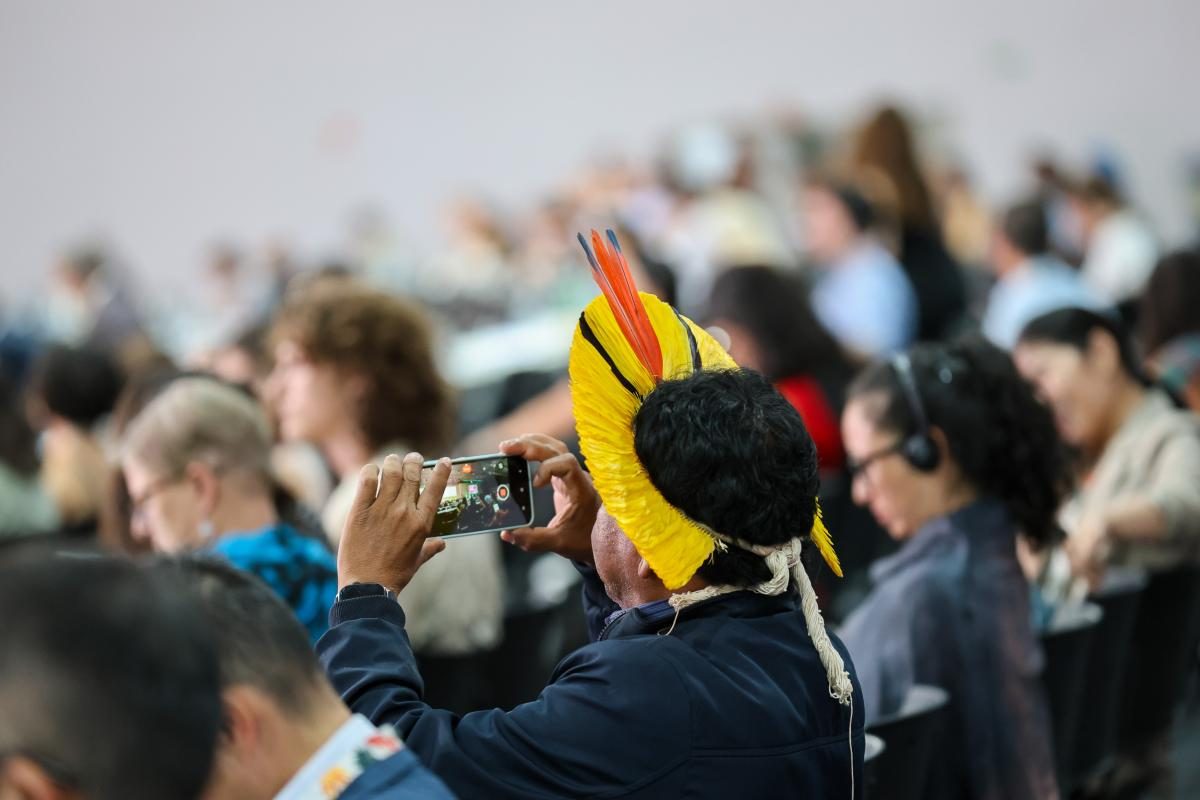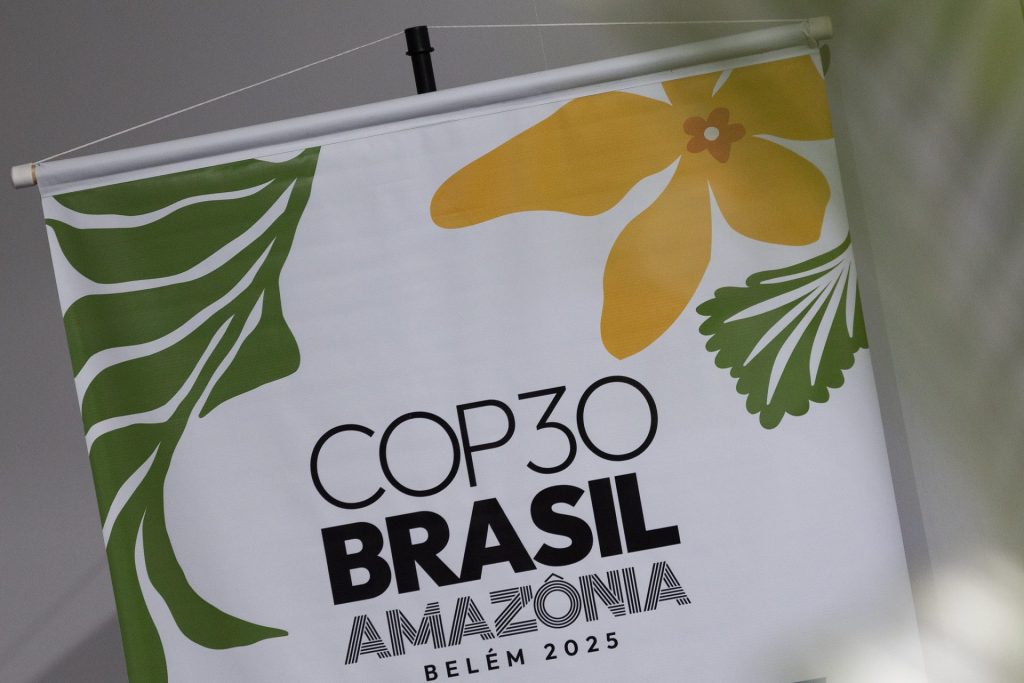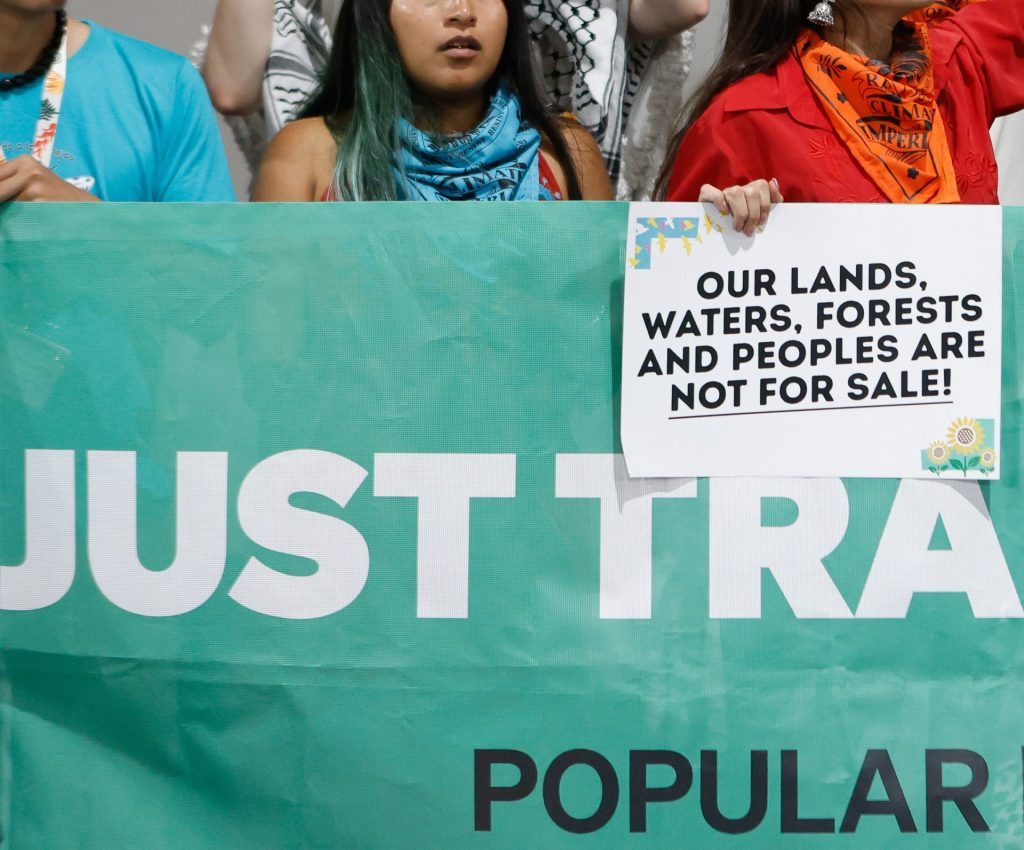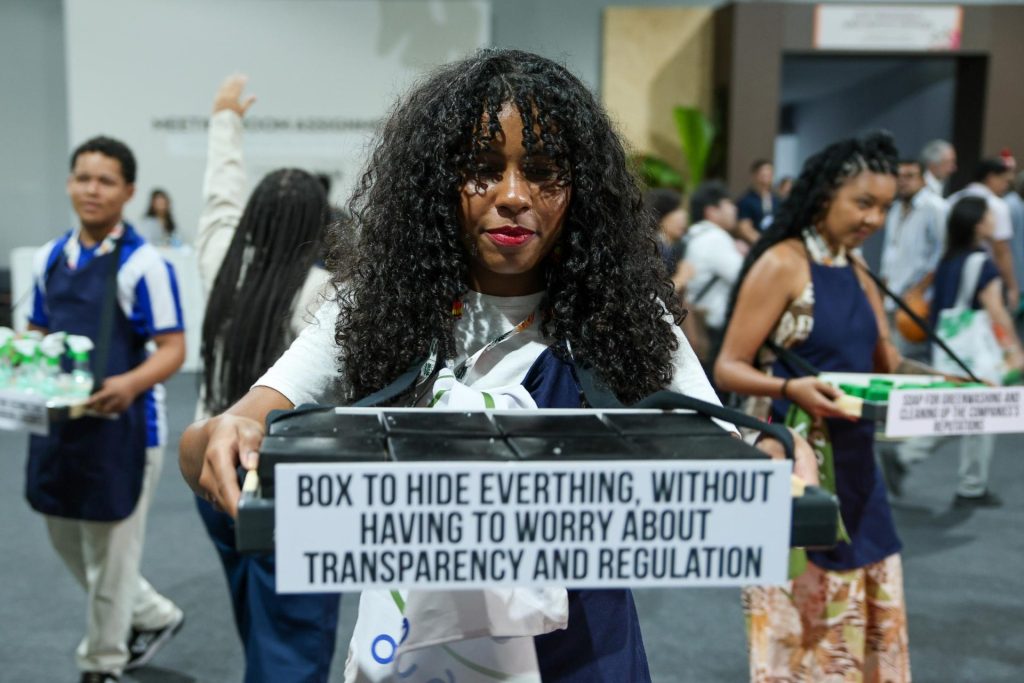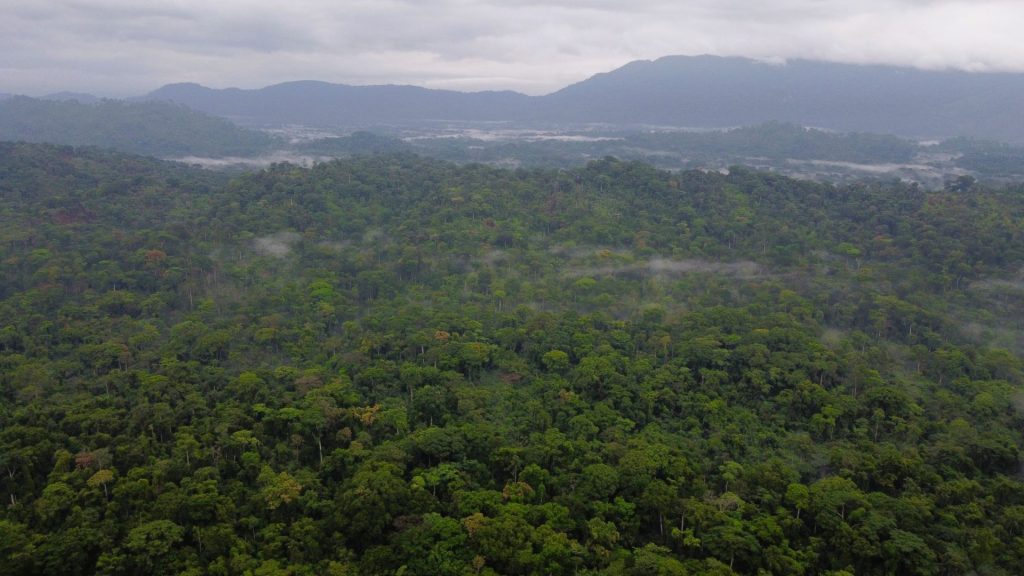They called for scaled-up climate finance, a strong Global Goal on Adaptation, and fair global trade rules that uphold multilateralism and deliver development for all. In particular the group is looking to see concrete outcomes matched by ambition and scale, marking their priorities as the talks transition from the technical negotiations of the subsidiary bodies, to the Ministerial and Head of Delegation level, as well as further Presidential consultations.
Climate finance
On climate finance, Muyungi stressed that Article 9.1- the legal obligation of developed countries to provide climate finance to developing countries, is critical to African countries implementing their NDCs.
“On Article 9.1, the issue is simple, developing countries cannot rely on vague assurances. We need clear, concrete commitments from developed countries, yet few have put forward new finance pledges. For Africa, Article 9.1 must be fully implemented, just like every other part of the Paris Agreement. It is an obligation, not an option. Without it, adaptation finance will be replaced by loans, leaving vulnerable countries to pay for impacts they did not cause. Resource mobilization under Article 9.3 is valuable for mitigation, but it cannot be a substitute for the guaranteed provision of finance required under Article 9.1. Adaptation depends on it, and so does the credibility of the entire agreement.”
Prof Lopes, issued a stark warning about global finance models that increasingly burden developing countries with commercial debt. “Blended and hybrid finance often camouflage the fact that commercial conditions are expanding. These instruments are not multiplying finance, they are simply bringing in more commercial money. We must pay attention when practice does not match the promise.” He criticised Just Energy Transition Partnerships (JET-Ps) for shifting away from grant-based support toward loan-heavy arrangements.
This week, parties will continue to discuss how to scale adaptation finance, with many developing country blocs calling for a new goal of tripling adaptation finance by 2035, to replace the adaptation finance commitment from COP26 in Glasgow that expires this year. Last week the EU and Japan opposed the notion. COP30 Presidential consultations on Article 9.1. and the financial obligations of developed countries will continue this week.
Global Goal on Adaptation must not create new burdens
On the Global Goal on Adaptation (GGA) and UAE Framework for Global Climate Resilience, the AGN Chair emphasised that the indicators to track its implementation, which are currently under debate, must monitor global support, and not impose new obligations on developing countries.
“Indicators under the Global Goal on Adaptation are essential, we need a clear way to measure progress, just as we do for mitigation and the 1.5°C goal. But the issue is which indicators are being chosen. Some of them expect developing countries to do more with less, adding responsibilities without the means to deliver. Our concern is not with indicators themselves, but with ensuring they reflect real adaptation needs and come with the support required to achieve them.”
Last week, developing countries pushed back on indicators that track domestic budget allocation for adaptation, arguing it shifts the burden of providing adaptation finance to developing countries. The EU and Japan rather want the indicators to address “all sources of finance”. Based on this, the African group said the technical work on the indicators should be complemented by a political refinement process.
The Group also emphasised that recognising Africa’s special needs is rooted not in politics, but in science, geography and history. According to Muyungi, “Africa’s case makes this even more urgent. Scientifically, countries along the equator—many of them in Africa—are warming faster and face harsher impacts. Under Article 4.8, Africa also falls within several categories of highly vulnerable countries. And our historical and developmental context compounds these challenges. All of this makes Africa’s special needs and circumstances undeniable. They must be fully recognised if the global goal on adaptation is to be meaningful.”
Baku–Belém Roadmap: “Unlock the $1.3 Trillion
Muyungi also underscored Africa’s concern about slow progress on climate finance following the COP29 decision on the New Collective Quantified Goal(NCQG) to mobilise $300 billion annually by 2035, and design a roadmap towards achieving the $1.3 trillion.
“From Baku to Belém, the core issue is simple, we now have a commitment to mobilise at least 300 billion dollars a year up to 2035, and to build a pathway toward USD 1.3 trillion. But instead of negotiations, we were given consultations, and the roadmap was published without the final round of discussions we expected. The roadmap isn’t closed, and we will keep pushing to strengthen it. But our immediate concern is clear, how do we unlock the 300 billion dollars that must now replace the old 100 billion benchmark? We’ve entered a new phase, and delivering that 300 billion annually is the challenge in front of us.”
Dr. Muyungi noted that despite consultations in Bonn and additional ministerial discussions, African countries had expected a more inclusive process before the roadmap was published.
Last week, the African Group continued to call for a burden sharing arrangement across multiple negotiation tracks, to ensure finance for NDC support, they also asked for text to address the cost of capital.
Loss & Damage: First-Ever Pure Grant Fund, But Far From Enough
The AGN welcomed the operationalisation of the Loss and Damage Fund through the Barbados Implementation Modalities but stressed that the initial $250 million allocation falls short of the scale of needs.
“Under the Barbados Implementation Modalities, Loss and Damage support is made up of pure grants, not loans, and countries can access them through four clear channels: directly through their national focal points, through existing direct-access entities, through international entities like UNDP or the World Bank, or through regional institutions. This is the first time we have a fund that delivers only grants, and that’s a major step forward. The amounts are still small, 800 million dollars in the fund, with 250 million allocated for 2025–2026, but it builds momentum. We expect more pledges at this COP. We’re also pushing to secure new resources through the Adaptation Fund as it transitions from Kyoto to Article 6 of the Paris Agreement.
The principle is simple: those who caused the problem must support those living with the impacts. But for 30 years, this principle has been contested. We’re trying to uphold multilateralism while ensuring these core obligations are honoured. These are the difficult choices before us.”
With Africa requiring over $3 trillion for adaptation alone, the AGN called for significantly increased pledges at COP30.
Trade: Climate Cannot Become a Pretext for Protectionism
In respect of trade, Prof Lopes underscored that “it is important to recognise that while trade discussions formally belong to the World Trade Organisation(WTO), the current problem exists precisely because new measures are being taken outside the WTO framework. Those calling for the discussions to be moved to the WTO are the same actors not respecting it as the normative space for these issues. We see this in examples such as CBAM, new forest-related clauses from Europe, recent tariff increases, and a growing list of protectionist measures that invoke climate concerns while penalising countries that contribute the least to the climate crisis. It is a clear paradox. What we need instead are incentives for countries that are not contributing to the problem. Some may emit in specific industries or exports, but the overall picture is what matters. Africa emits the least globally. You cannot penalise isolated sectors without considering the continent’s full development spectrum.”
Dr. Muyungi echoed this concern: “These are complicated matters that force us to ask whether we truly cherish multilateralism or unilateralism. At times we all call for multilateralism, yet in practice, we defend our own territories and businesses. As negotiators, this contradiction puzzles us. We believed all countries would work together without putting up new borders, especially when facing a shared global challenge. Yet a number of countries have introduced trade-restrictive measures and justify them as WTO-related, whether on patent rights or other issues. If these unilateral measures continue, many countries will be disadvantaged and restricted from trading goods or services deemed to have an ‘unacceptable’ carbon footprint. But how does a product acquire that carbon footprint? Often through technologies and services that originate from the very countries imposing these restrictions. This is not the right way forward if we want to protect multilateralism. Without clear guardrails, these actions will undermine the development and trade opportunities we are trying to build. This is the discussion we are engaged in, and it is urgent”
On the Just Transition
Last week the Africa Group continued to seek concrete outcomes from the work programme, wanting it to be more than a dialogue. This ties to discussions on whether to adopt “arrangements” or a mechanism or some other institutional framework post 2026 to support Just Transitions. This is an idea that the G77 and China are still pushing at COP30. At the talks the EU and UK pushed back citing cost and duplication of existing efforts. A breakthrough in discussions, however, was support from the UK to include equitable, transparent, sustainable and traceable mineral supply chains in the discussion, which also had African support. This discussion was in parallel to COP30 Presidential consultations on unilateral trade measures.
Fossil Fuel Roadmap
A small group of EU countries, Kenya and Colombia are arguing for a process to discuss pathways to shift away from fossil fuels, in the form of a roadmap. On Saturday, in response to a suggestion from AOSIS, the LDC Group and the UK to strengthen the existing Roadmap to 1.5 degrees, the African Group stressed that any roadmap must include not only mitigation but also adaptation and finance. The COP30 President has been reluctant to address the issue, telling a press conference a fossil fuel roadmap was not on the agenda.

